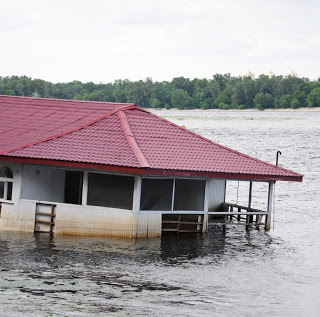 3 Things That May Not Be Covered by Your Homeowner’s Insurance—
3 Things That May Not Be Covered by Your Homeowner’s Insurance—
But That You Still Need!
By Linda Rey
Don’t you just love buying insurance? OK, probably not, but don’t you just love when you have the right insurance in an emergency? No one wants to find out at the wrong time that what they thought was covered by their homeowner’s policy isn’t actually covered. Let’s look at what your homeowner’s insurance doesn’t or may not cover.
Flood
Flooding is not covered by homeowner’s insurance. Period. No gray area, no loopholes.
Let’s be specific about what a flood is so you can decide if you need a separate flood policy through the National Flood Insurance Program (NFIP). That flood insurance policy can still be purchased through your local agent.
FEMA defines a flood as “excess of water on land that is normally dry.” The NFIP considers a flood “a general and temporary condition of partial or complete inundation of two or more acres of normally dry land area or of two or more properties (at least one of which is your property) from:
- Overflow of inland or tidal waters;
- Unusual and rapid accumulation or runoff of surface waters from any source;
- Mudflow; or
- Collapse or subsidence of land along the shore of a lake or similar body of water as a result of erosion or undermining caused by waves or currents of water exceeding anticipated cyclical levels that result in a flood as defined above.”
On the bright side, a burst pipe is considered a covered claim.
Loss Assessment
If your condominium, co-op apartment, or townhome is part of a homeowner’s association, your homeowner’s policy should include loss assessment insurance. Loss assessment provides coverage for damage to the common areas owned by all residents. If the association charges all residents to pay for damages, this coverage will provide for that.
Earthquake
Depending on where you live in the country, this could be a critical exclusion. The western United States receives the most earthquakes, but according to the United States Geological Survey, they can still occur throughout the rest of the country.
Earthquake insurance should cover the cost of replacing your property or repairing damage to it. When reviewing this insurance, consider the following:
- Will only your dwelling be covered?
- Will detached structures be covered?
- Will your contents be covered as well as loss of use for expenses incurred if you have to live elsewhere during repairs?
- What isn’t covered?
- What is your deductible?
As I’ve said before, insurance exists to protect you, your family, and your assets in case of an emergency. What keeps you up at night? Think about it, and then call your insurance agent. He or she may be able to help.
READ MORE:
Insuring a Home Office
Insuring a Vacant Home
Insurance Agents vs. Insurance Websites: Where Will You Get the Better Buy?
Umbrella Insurance: The FAQs






